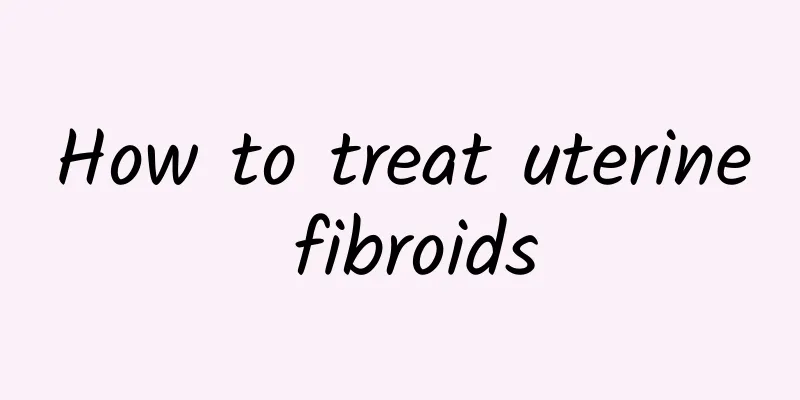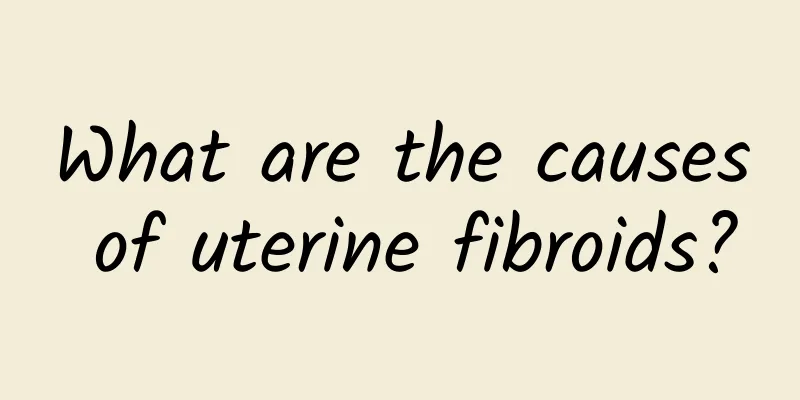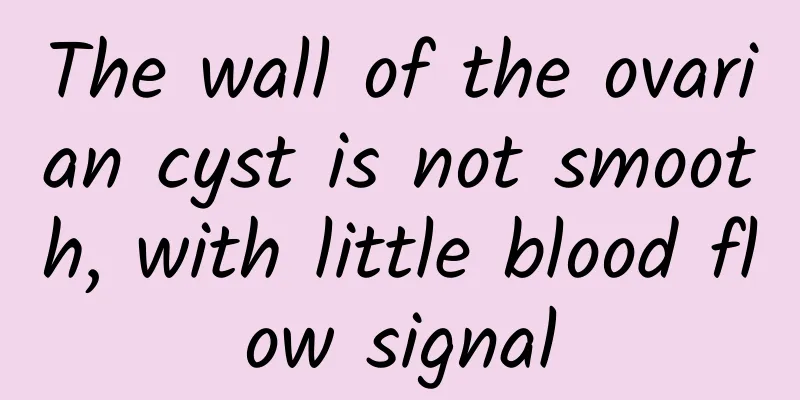How to treat uterine fibroids

|
How to treat uterine fibroids? Uterine fibroids are a common gynecological disease in today's life. The occurrence of this disease seriously affects the patient's physical and mental health, and may even cause female infertility. Therefore, patients should actively seek treatment. So, how to treat uterine fibroids? Let's take a look. Clinical surgical treatment of uterine fibroids: 1. Myomectomy: Cut open the uterus, remove the uterine fibroids from the pseudocapsule, and then suture the uterus. The uterus is retained, so that the patient can still have menstruation after surgery, the uterus's reproductive function is retained, and the female internal reproductive organs and their blood supply and function are retained. However, there is a possibility of recurrence of uterine fibroids after surgery. For some patients, laparoscopic myomectomy can be performed according to specific circumstances. 2. Hysterectomy: It is the most traditional and classic surgical approach for uterine fibroids. It removes the uterine body and (or) cervix, retains one or both adnexa, and can also remove both ovaries. It is suitable for any disease that requires hysterectomy, especially patients with cervical lesions, and can reduce the incidence of cervical stump cancer. However, postoperative vaginal shortening and pelvic floor ligament relaxation may cause sexual intercourse pain, etc. Radiation therapy for uterine fibroids: It is suitable for patients with uterine fibroids who are not responsive to drug treatment and who are contraindicated for surgical treatment or who refuse surgical treatment. However, radiotherapy kills normal tissue cells while killing fibroid cells. In addition, radiotherapy can cause temporary or permanent amenorrhea. It is not suitable for young patients under 40 years old, patients with inflammatory manifestations, patients with large uterine fibroids, patients with cancer, pregnant patients, etc. Minimally invasive treatment of uterine fibroids Many women adopt conservative treatments for uterine fibroids immediately after they are found to have uterine fibroids. In fact, if the fibroids are small and asymptomatic, conservative drugs can control them. However, if the uterine fibroids are already large, then the best treatment method is to use minimally invasive techniques. Minimally invasive surgery can be used not only for diagnosis but also for treatment and follow-up of intra-abdominal lesions. It uses laparoscopic technology to replace traditional open surgery. It has the advantages of less trauma, less pain, faster recovery after surgery, shorter hospital stay, and more aesthetic abdominal incisions. It is an advanced technology for gynecological surgery. It is also the most popular treatment method for patients with uterine fibroids. |
<<: What are the causes of recurrence of uterine fibroids?
>>: What to do when uterine fibroids occur?
Recommend
Is it easy to have beautiful legs? 10-minute leg slimming exercise
If you ask people which part of the body is the h...
Three aspects of care are essential for patients with uterine fibroids after hysterectomy
Uterine fibroids are benign gynecological tumors ...
Pay more attention to atrophic vulvar leukoplakia
What is atrophic vulvar leukoplakia? Women must w...
My period is almost over and I have severe back pain. What's wrong?
My period is almost over and I have severe lower ...
What anti-inflammatory drugs should I take after painless abortion? Do I need to take anti-inflammatory injections after painless abortion?
Painless abortion is a common gynecological surge...
Note: Symptoms of cervicitis in women are more common after childbirth surgery!
The incidence of female cervicitis symptoms ranks...
What are the main symptoms of cervical hypertrophy?
Cervical hypertrophy is a common gynecological di...
What is the diet like after uterine fibroid surgery?
"What are the dietary precautions after uter...
How to avoid recurrence of bacterial vaginosis
If we have a certain understanding of the harm ca...
Induce menstruation in 5 minutes
Does it sound like magic that the menstrual cycle...
Brief analysis of complications of bacterial vaginosis
Bacterial vaginosis is a disease caused by an imb...
Can amenorrhea be cured?
Due to family economic and psychological reasons,...
Eating ice causes diarrhea? Detected salmonella! Nutritionist Li Yihua: 4 principles to prevent salmonella infection
Recently, more than 20 people went to an ice crea...
How to treat pelvic inflammatory disease?
How to treat gynecological pelvic inflammatory di...
Chest expansion water bottle exercise! The golden career line follows
The sun is shining brightly. Whether on the beach...









